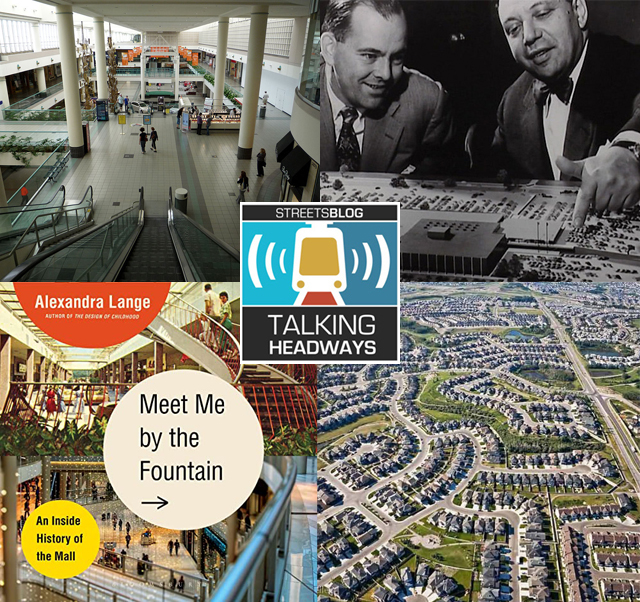This week we’re joined by architecture journalist Alexandra Lange to talk about her book, Meet Me by the Fountain: An Inside History of the Mall. We chat about the evolution of the enclosed shopping center, equity, legal implications, and of course, pop culture.
For those of you who prefer to read rather than listen, check out the edited highlights below the player. If you want a full, unedited transcript, be our guest by clicking here.
Here we go:
Jeff Wood: Victor Gruen is often given the "grandfather of the mall" moniker. He didn’t really want it. But he’s also very influential in a lot of people, including James Rouse and Walt Disney, I mean, Sam Gennawey found that, you know, the only book in Walt Disney’s archive was the The Heart of Our Cities by Victor Gruen, which is really interesting when he was thinking about doing Disney World and EPCOT. I’m wondering, you know, why he wanted to kind of step away from that moniker. And was it because of suburbia? Was it because of the auto centricity of it all? Was it because his designs got kind of bastardized by developers?
Alexandra Lange: It’s because his original vision didn’t take hold. I mean, if you look at Southdale, which was his first indoor mall, which opened in Edina, Minnesota in 1956, his original plans included the mall, yes, but all of this high-rise housing, medical development, office development around the mall.
So he essentially visualized if not transit-oriented development, at least a kind of dense, mixed-use city around the mall. And he also envisioned a lot more public facilities as part of the mall, like a true community center. And as his ideas took hold and other developers started building malls, so many of those elements that he had originally had as part of his vision fell away and the mall became this, you know, big retail box in the middle of a parking lot. And he was really dismayed by how disjointed that made cities, how ugly the malls were from the outside. And so at a certain point, he really didn’t want to be associated with them anymore because they had none of the urban qualities that he had been trying to bring from Vienna to the edges of American cities.
Jeff Wood: Why are we always responding to cars and bad zoning codes?
Alexandra Lange: I guess that’s the million-dollar question. I mean, one of the revelations for me was thinking about the mall as this object designed as a bridge between the highways that the government was subsidizing and the single-family homes that the government was subsidizing. You know, the U.S. went into the post-war era, spending money on these two things that were fine in and of themselves, but had no provision for community space. And so I think if Gruen hadn’t invented and popularized the mall, the suburbs would in fact be far more Dystopian than they are now. I mean, I think you could write a whole alternate history sci-fi novel about the suburbs without the mall.
Jeff Wood: Would it be a zombie movie too, like in the book?
Alexandra Lange: The zombies are made by shopping? I mean, I had a lot of fun doing all of the pop culture reading, watching, and reporting for this book. And one of the things that was most interesting to me was watching movies like Dawn of the Dead, which is set in a mall, and realizing that the zombies really aren’t the bad guys in that movie. I mean, George Romero is commenting on how we are all programmed to shop. So the zombies are merely an exaggeration of what he saw late-1970s humans doing anyway.






